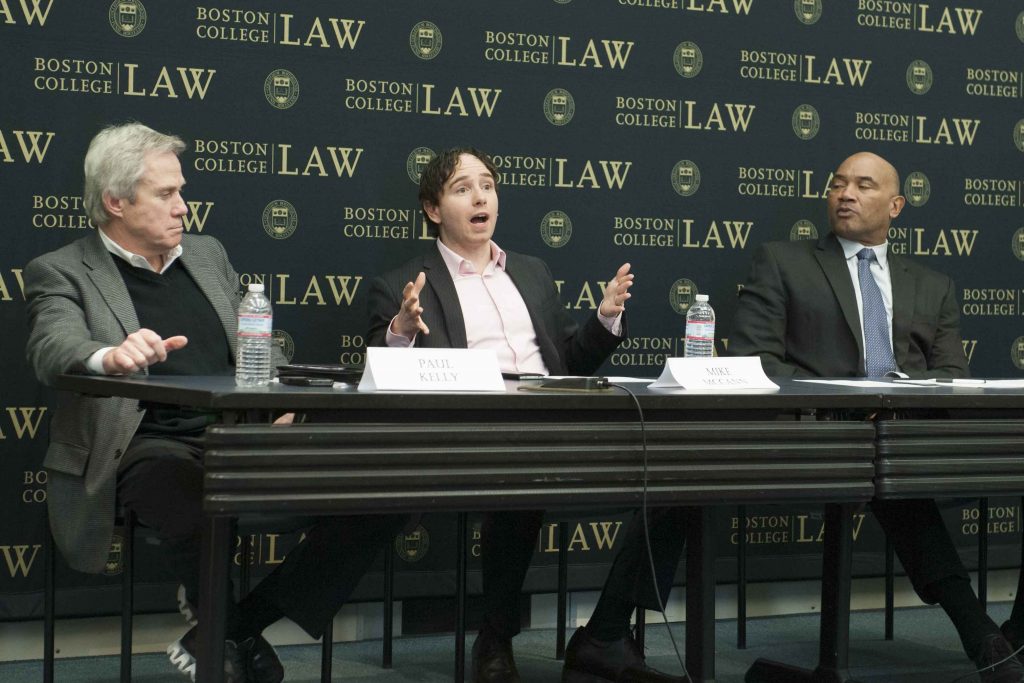A current emphasis in the world of sports law is on the commercialization of college athletics and whether student-athletes are employees, what that means for the NCAA, and what the impact of recent lawsuits that have challenged NCAA rules will have on how the athletes are compensated.
These issues and more were part of the inaugural Sports Law Symposium at BC Law January 30, sponsored by the Sports and Entertainment Law Society (SELS). Three panels were assembled to discuss the NCAA, scholarship and sports, and the role of agents.
NCAA panel moderator Professor Warren Zola of Boston College asked what it would mean for college athletes to be paid at free-market rates. But he cautioned that while many observers are focused on how the outcome of lawsuits like O’Bannon v. NCAA and Jenkins v. NCAA might result in top college athletes being paid millions, it is important to “think about not only the elite athletes, but also those who may be getting less than [the scholarships] they are now” as a result.
Panelist Paul Kelly of the Boston law firm Jackson Lewis added that there is more than money at stake in proposed changes to NCAA rules. “For the public, one of the attractions and reasons to watch March Madness and Saturday football games is that they are not pros,” he argued. “The public generally still appreciates the amateur quality of collegiate athletics.”
The conversation also touched upon how to encourage young athletes, in this case basketball players, to go to college and stay there for at least two or three years. Kelly emphasized how important a few years of college can be to players, and said that in order to keep them in school, the NCAA needs to work with the NBA on the eligibility rules.
However, “the NBA needs to be careful,” countered Mike McCann of the University of New Hampshire. If the NBA eligibility is changed to twenty years old and two years out of high school, players may go to Europe” to play in the pros instead, he said.
During the agents portion of the symposium, the discussion shifted to jobs and client relationships. Panelists also spoke at length about social media.
Several of the speakers said they advise clients that it is useful to build up their online presence because it can produce an income stream if used properly and the advertisements they are a part of seem organic. “When done right [social media] is something that is very beneficial,” said Kristen Kuliga of K Sports & Entertainment. Jay Fee of Nelson Mullins Riley & Scarborough concurred, but said he tells young athletes to stay away from hot topics like politics and religion that may generate too much reaction.
A total of twelve panelists and moderators participated in the daylong event, including the agents, university representatives, professors, and company representatives.


